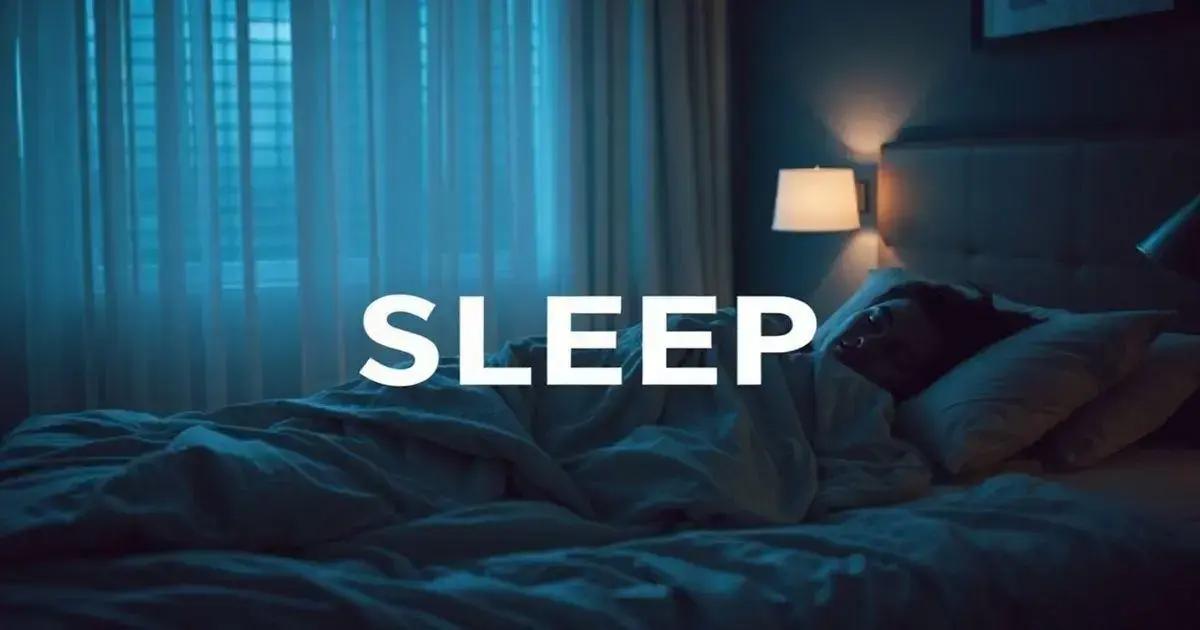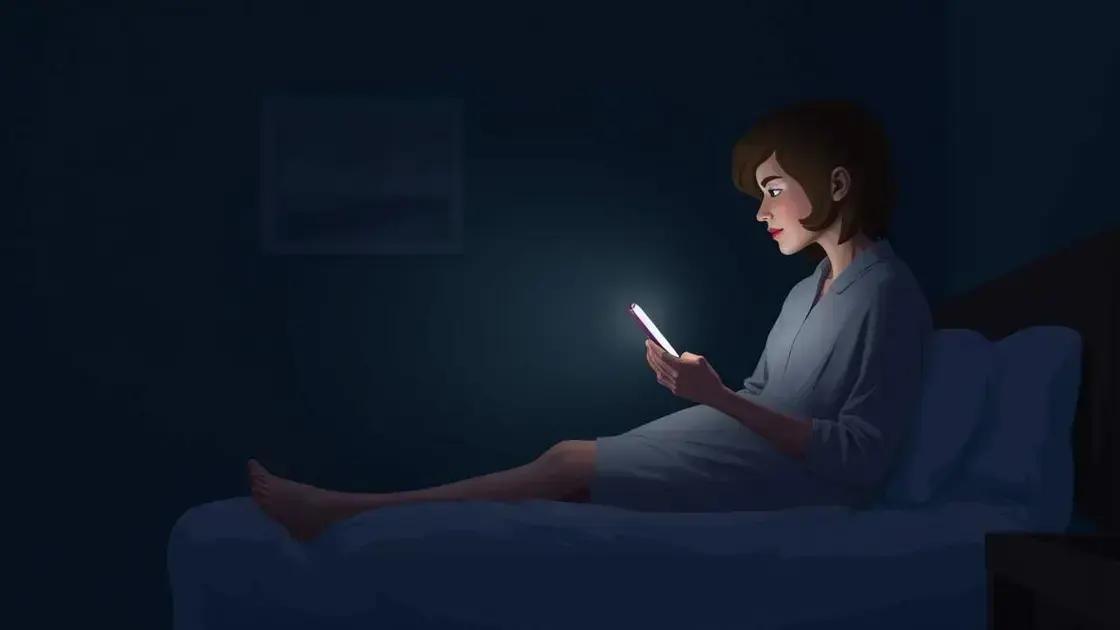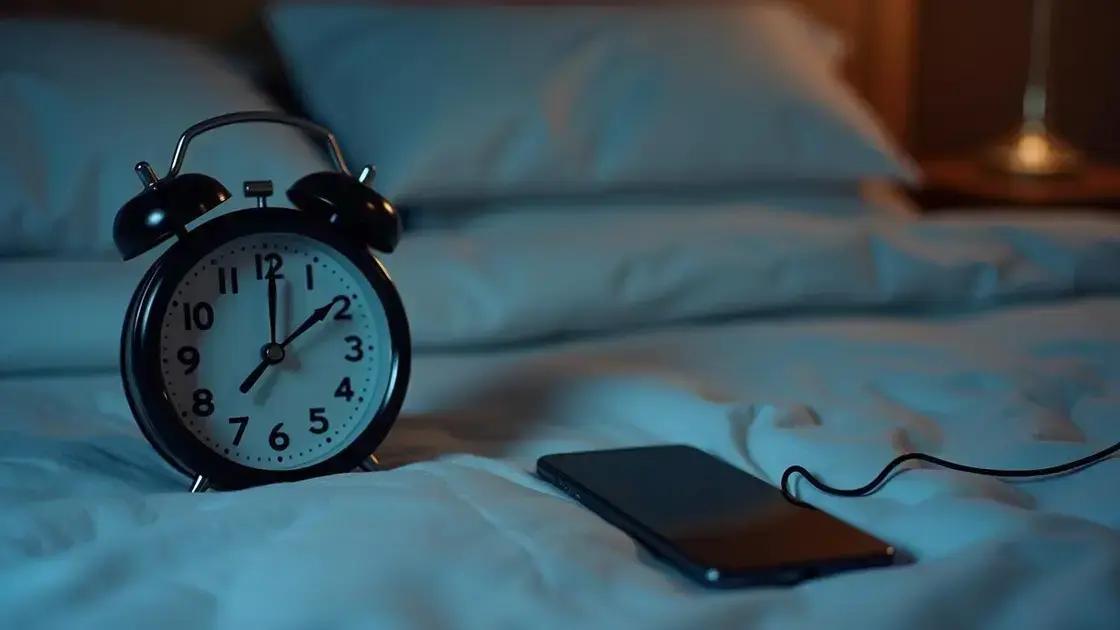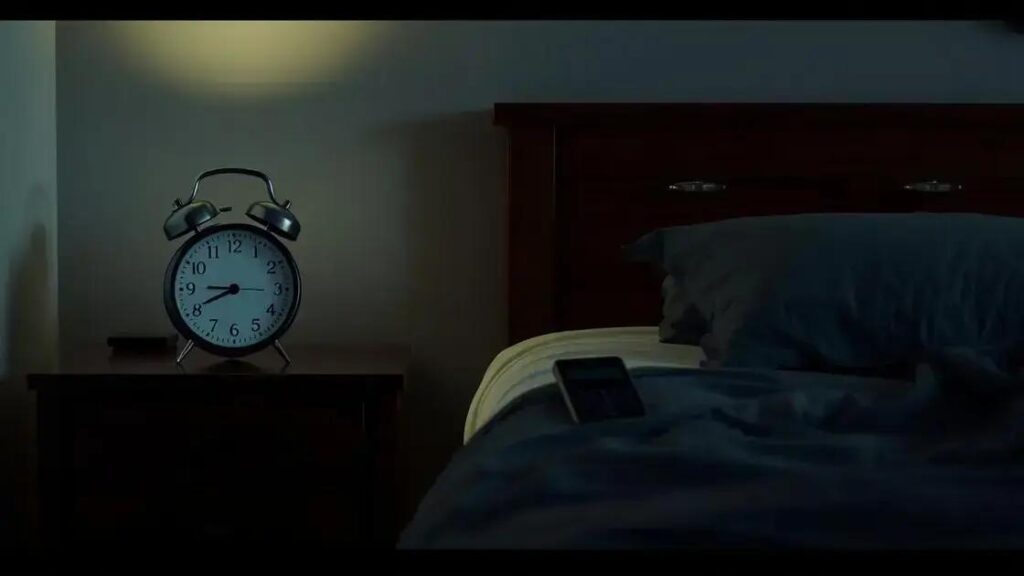Improving sleep quality with a digital curfew involves setting specific times to turn off devices, reducing screen time before bed, and engaging in calming activities. This practice can help enhance sleep quality, support better overall health, and promote a more relaxed mindset for restorative sleep.
How to improve sleep quality with a digital curfew is a question many of us ask in our tech-driven lives. As screens dominate our evenings, the quality of our sleep can suffer, leading to fatigue and decreased productivity. In this article, we will uncover strategies for setting a digital curfew, the benefits of limiting screen time before bed, and practical tips to ensure restful, rejuvenating sleep.
Understanding Sleep Quality

Understanding Sleep Quality is crucial in our busy lives. Sleep quality refers to how well you sleep, influencing your physical and mental health. Good sleep is more than just getting enough hours; it means sleeping soundly without frequent awakenings.
What Factors Affect Sleep Quality?
Several factors impact how well you sleep. Stress and anxiety can keep you awake. If your mind is racing, it’s hard to drift off. Environment plays a role, too. A noisy or bright room can disturb your rest.
Signs of Poor Sleep Quality
Recognizing the signs of poor sleep quality is important. If you wake up tired, have trouble concentrating, or feel irritable during the day, these could be signs that your sleep is not restful.
Why Quality Sleep Matters
Quality sleep helps your body repair itself. It supports healthy brain function and emotional well-being. When you get good sleep, you’re likely to be more productive and happier.
The Impact of Screen Time on Sleep

The Impact of Screen Time on Sleep is significant in today’s digital age. When we use screens late at night, our sleep can be affected in many ways. One major issue is blue light emitted by devices such as phones, tablets, and computers. This blue light can interfere with the production of the sleep hormone melatonin, making it harder for us to fall asleep.
How Screen Time Affects Sleep Patterns
High screen time before bed can disrupt our natural sleep patterns. When we’re engaged with screens, our brains become alert. This stimulation can lead to trouble falling asleep or waking up during the night. The more time we spend on screens, the more our sleep can suffer.
Recommendations for Reducing Screen Time
To improve sleep quality, consider reducing screen time in the evening. Aim to turn off screens at least an hour before bedtime. Instead of scrolling through social media or watching TV, you could read a book or listen to calming music. These activities can help you unwind and prepare for sleep.
The Connection Between Screen Use and Sleep Disorders
Excessive screen time is linked to various sleep disorders, such as insomnia. If your screen time habits are contributing to sleep struggles, it may be time to reassess them. Making small changes can lead to big improvements in how well you sleep.
Establishing a Digital Curfew

Establishing a Digital Curfew is an effective strategy to enhance your sleep quality. A digital curfew involves setting a specific time to turn off all digital devices, such as phones, tablets, and computers. By having a fixed time, you help your mind and body unwind before bedtime.
Steps to Set Your Digital Curfew
Start by choosing a time that works for you, ideally one to two hours before you plan to sleep. This allows your brain to shift gears from active use of devices to relaxation. Inform your family or friends about your curfew to encourage accountability.
Prioritizing Activities During Curfew
During your digital curfew, consider engaging in calming activities like reading a book, practicing mindfulness, or enjoying a warm bath. These activities can help your body relax and signal that it’s time for sleep.
Tips for Sticking to Your Curfew
Sticking to your digital curfew may be challenging at first. You can use apps or settings to limit screen time and send reminders when it’s curfew time. Placing devices out of reach can also help reduce the temptation to check them.
The Benefits of a Digital Curfew
Implementing a digital curfew can lead to improved sleep quality, better focus during the day, and enhanced well-being. By minimizing screen time, you can enjoy deeper sleep cycles and wake up feeling refreshed.
Tips for a Successful Digital Detox

Tips for a Successful Digital Detox can make a big difference in improving your sleep quality. Here are some strategies to help you disconnect from digital devices effectively.
Set Clear Goals
Define what you want to achieve with your digital detox. Whether it’s reducing screen time or taking a complete break, knowing your goals will guide your efforts.
Start Small
Begin by unplugging for a short period each day. Try taking an hour or two off devices and gradually increase this time. Small steps can lead to lasting changes.
Create No-Device Zones
Establish areas in your home where devices are not allowed. For example, keep the bedroom a tech-free zone. This helps create a restful atmosphere conducive to sleep.
Engage in Non-Digital Activities
Find enjoyable activities that don’t involve screens, such as hiking, cooking, or playing games. These activities can help reduce your reliance on digital devices and improve your overall well-being.
Taking Control of Your Sleep Quality
Improving sleep quality with a digital curfew can be transformative. By understanding sleep quality and the impact of screen time, you can establish a digital curfew that promotes better rest.
Implementing a digital detox with clear goals and engaging in non-digital activities are key steps. Creating no-device zones is also essential in making your environment conducive to restful sleep.
Incorporating these tips into your daily routine can lead to deeper sleep, increased energy levels, and overall enhanced well-being. Take control of your digital habits today to unlock the benefits of better sleep.
FAQ – Frequently Asked Questions about Improving Sleep Quality with a Digital Curfew
What is a digital curfew?
A digital curfew is a designated time during which you avoid using digital devices, promoting better sleep and relaxation.
How can screen time affect my sleep?
Excessive screen time, especially before bed, can interfere with melatonin production, making it harder to fall asleep.
What are some tips for establishing a digital curfew?
Choose a specific time to turn off devices, prioritize calming activities during the curfew, and inform others to encourage accountability.
Why is sleep quality important?
Good sleep quality supports physical health, mental clarity, and emotional well-being, helping you feel more energized and productive during the day.
How can I successfully detox from digital devices?
Start small by unplugging for short periods, set clear goals, and engage in non-digital activities to help reduce reliance on screens.
What benefits can I expect from a digital curfew?
Establishing a digital curfew can lead to improved sleep quality, better focus and mood, and overall enhanced well-being.













